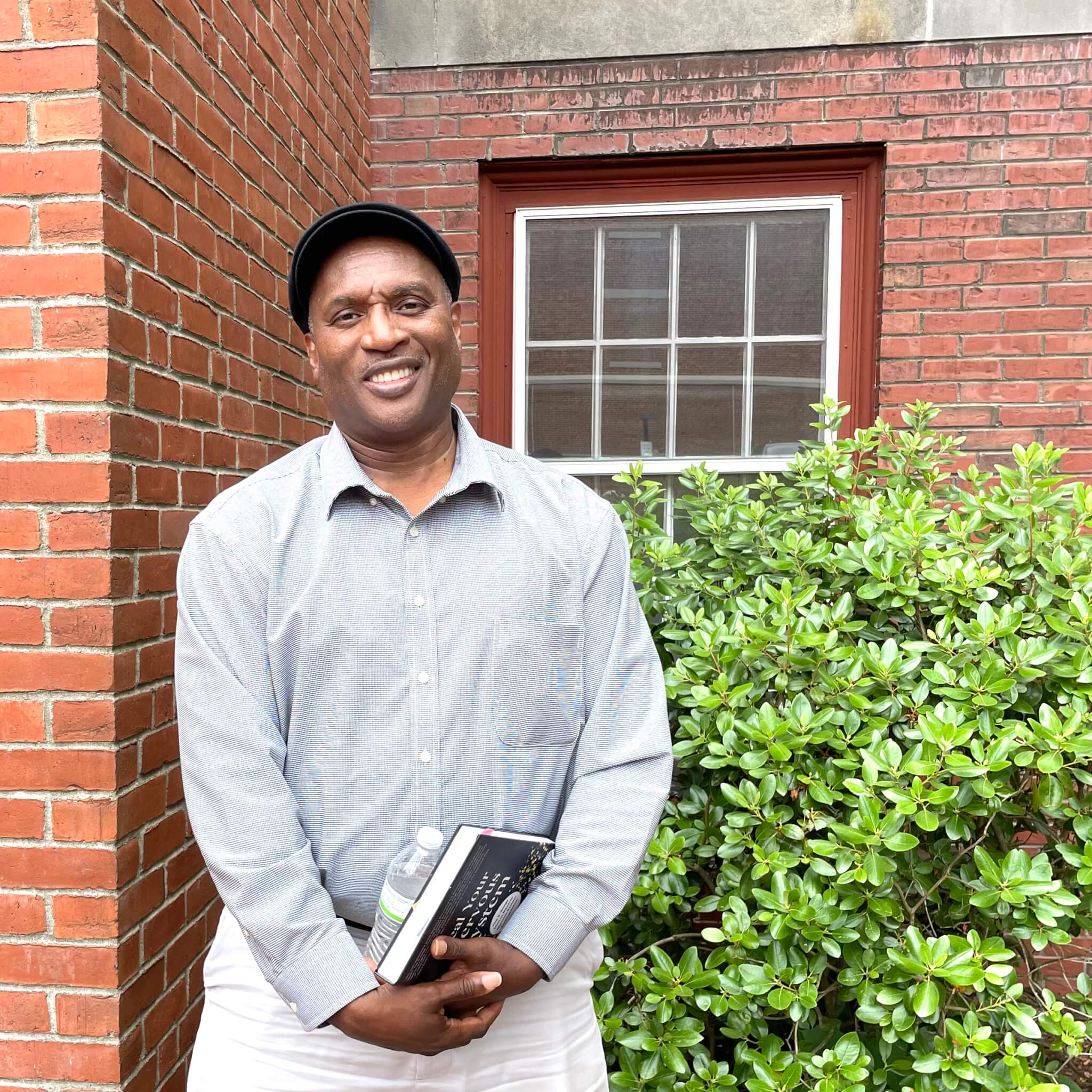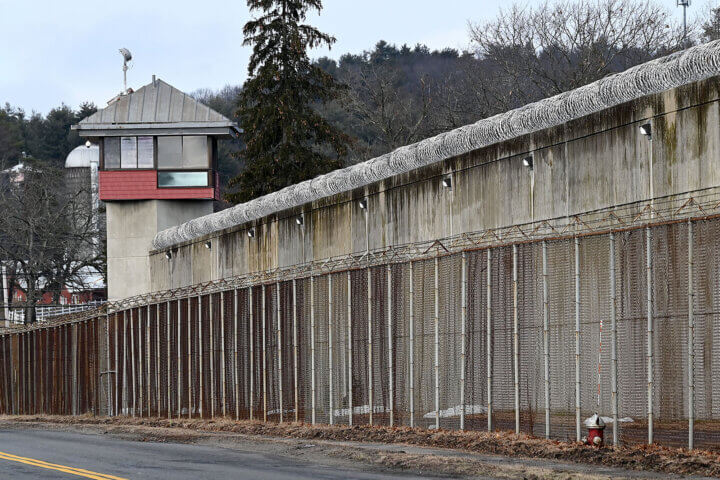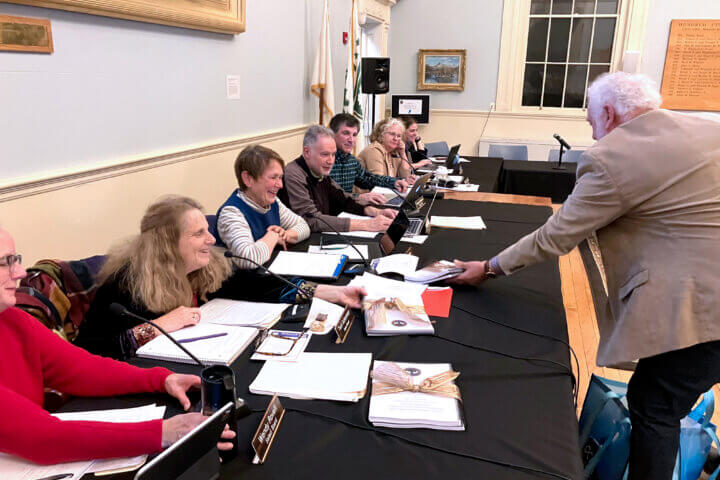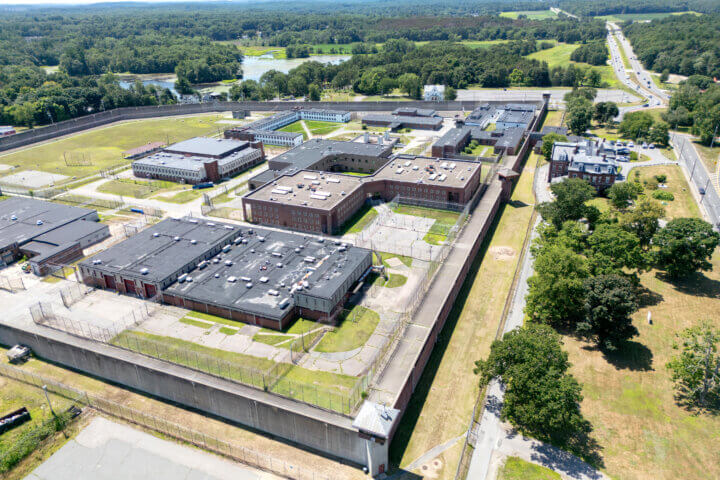By Christine M. Quirk — Christine@theconcordbridge.org
The deep understanding of incarceration Liz Rust and Sam Williams bring to working with inmates through Concord Prison Outreach doesn’t come from a textbook.
“I’ve done re-entry work for 28 years, but the real essence of my story is that I spent time inside,” Williams said. “I can create a picture in my own life and story that these guys can carry and think about in ways they can replicate in their lives.”
At 19, Williams was convicted on a manslaughter charge after he stabbed and unintentionally killed someone during what he called a “drug deal gone bad.” He spent 14 years behind bars.
Williams, CPO’s director, said he had a troubled childhood and spent time in the juvenile justice system, “so when CPO hired me, I came with both the life experiences and tragedies of these young kids and the professional background.”
Rust spent six months at MCI-Framingham after a 2012 drunk driving conviction. At that time, she worked for the Sudbury Department of Planning and Development, and she and other town officials had gone out for drinks after the 2012 Annual Town Meeting.
“It was very public,” Rust said.
A year elapsed from arrest to sentencing.
“Even with a year of getting ready for it mentally, it was traumatic and shocking when it happened,” she said. “When you’re in prison, it’s your whole world, and ‘out there’ is the other side of the world. They’re different universes.”
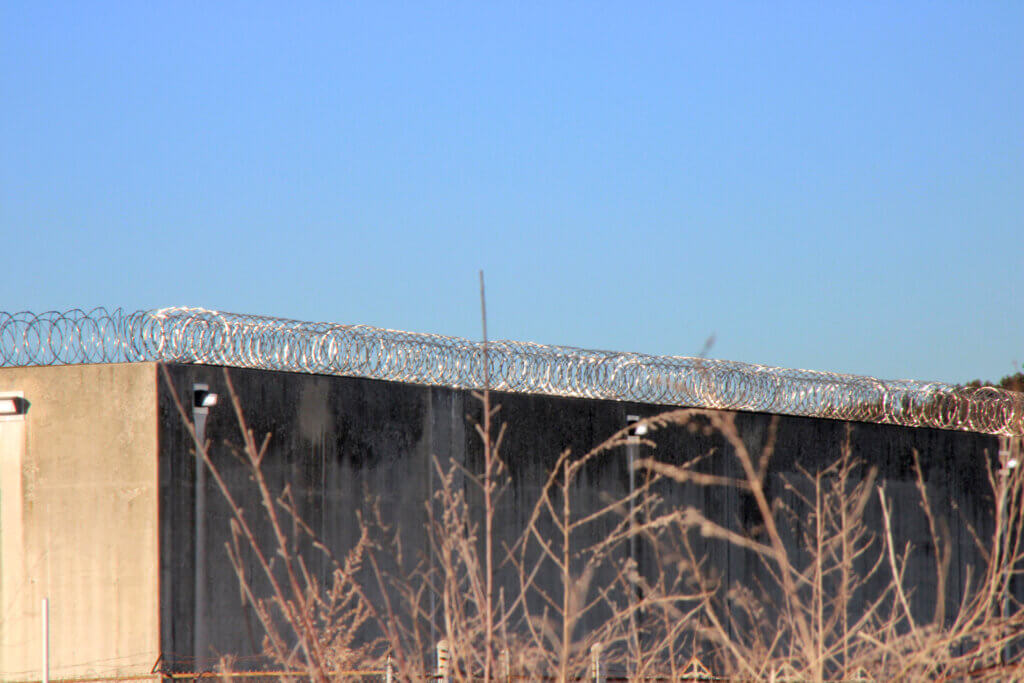
Taking responsibility
While incarcerated, Rust, who is now the chair of the CPO board, took advantage of the same programs she now leads. “Those were a lifeline, to have something productive to spend your day doing,” she said.
Williams was also involved in prison programs — he became sober, became a Muslim, and went to college.
“I left [MCI-Norfolk] with a bachelor’s degree from the Boston University Prison College,” he said. “The prison programming I had back then… is what set the foundation for me.”
Today, Williams leads restorative justice groups and trains others to be leaders. “It focuses on accountability, responsibility, and the creation of harm, and what your role was in the creation of harm,” he said.
Restorative justice, Williams said, is not about forgiveness. It’s also not a therapy group, though sometimes conversations get deep and personal. It is about criminals acknowledging their wrongdoing and, without making excuses for their actions, considering how their own pasts figured into their crimes.
“If you did something bad, you have to be accountable for it,” Williams said. “If something happened to you as a child, children can’t protect themselves from adults. I say this to them very clearly: ‘You could not have protected yourself.’ However, what you did at 19 or 20 — that is your responsibility.”
In addition to the justice groups, Williams also runs men’s groups, meditation groups, and yoga classes.
Speaking up
Rust said she didn’t speak openly about her experiences until she started working with CPO.
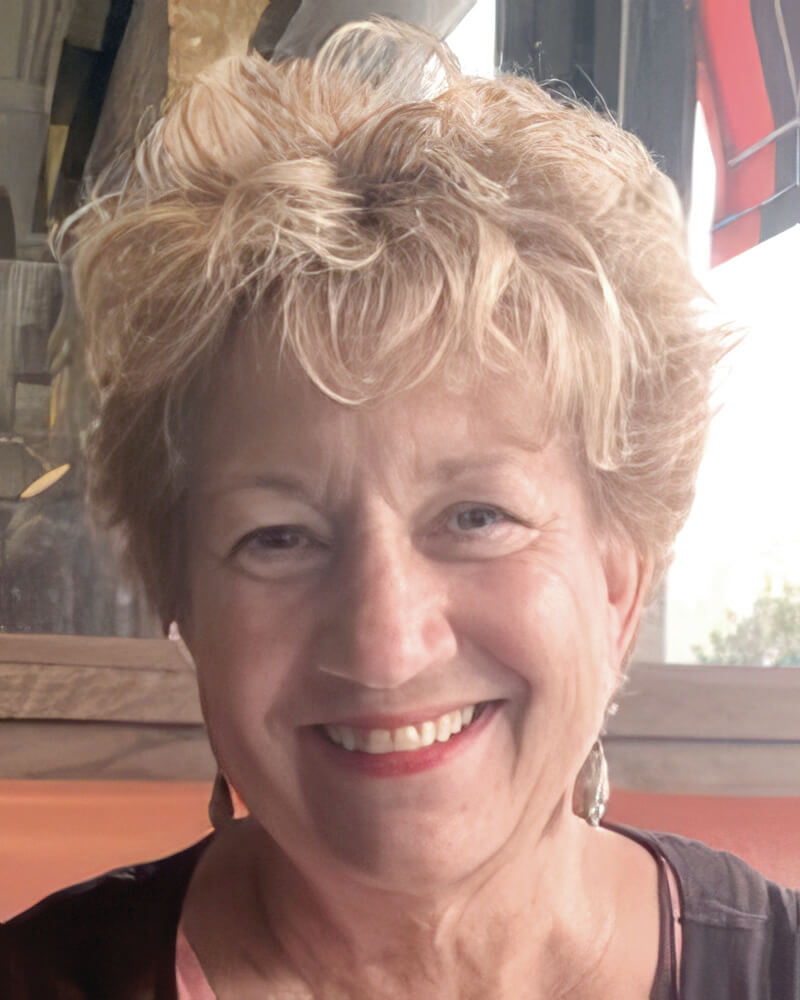
“I didn’t talk about it for five years,” she said.
“It was such a big experience, I would mention it, and people’s eyes would get big. They couldn’t relate.”
In a recent group at Framingham, she said the women talked about community connections — family, school, and church, for example — and one woman commented she had never had any community in her life.
“She was bounced around so much [as a child], she didn’t recognize any community in her life,” Rust said.
“That’s what brings me to do this work. I’ve always been drawn to service,” she said, noting that her “paid job” is as director of the Regional Housing Services Office, which helps residents of Concord and surrounding communities with affordable housing.
“It’s very real, the lives are real, and I think the impact you can make is important.”
Shared humanity
Unless one has had an experience with an incarcerated person, it’s easy to look the other way, Rust said.
“I learned the criminal justice system is huge,” she said. “There are cycles of violence and abuse, and so many drugs and addictions. These stories touch your heart, and you hope people can find their way to transform their lives.”
Rust and Williams both said that social-emotional programming is the most important.
“These are the ones that help you trace your feelings and figure out what brought you to prison and where did your life take a wrong turn,” Rust said. “I learned so many things. I think it was those deeper programs that were most meaningful.”
Williams hopes to have an impact on all the men with whom he works but is drawn to the younger ones and wants them to learn from his experiences.
“I want to say, ‘You’re 23 — you can turn this around in two to three years,’” he said. “You could go back to school and become whatever you want to be. You can overcome your criminal past.”


